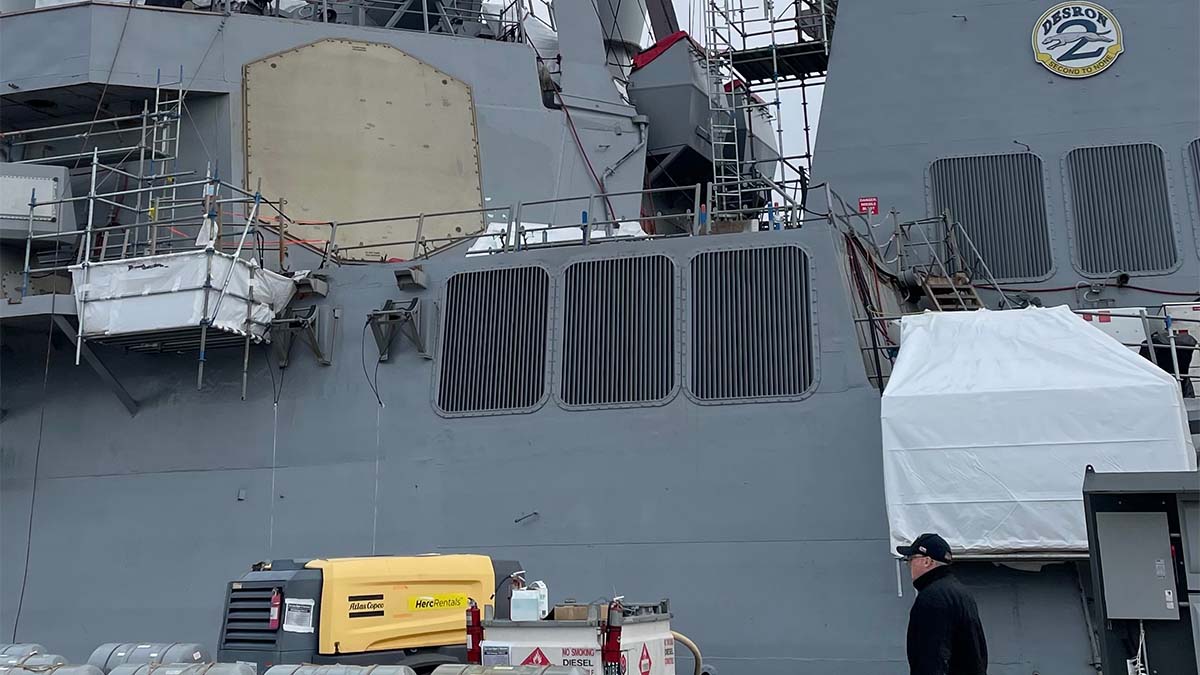Capt. William Harkin was relieved of his duties as commodore of Destroyer Squadron 2 for “loss of confidence in his ability to command.”
Harkin oversaw the three destroyers which served in the Gerald R. Ford strike group, which returned to Norfolk in January after an eight-month deployment.
The Navy often cites a loss of confidence when firing commanders without revealing the cause. Harkin took command in February 2023, only months before the strike group deployed in May.
Deputy Commodore Capt. James Von St. Paul assumed Harkins’ duties as commodore of Destroyer Squadron 2. Harkin is reassigned to the staff of Commander, Naval Surface Force Atlantic.
“Navy leaders are held to high standards of personal and professional conduct, both on and off duty. They are expected to uphold the highest standards of responsibility, reliability, and leadership, and the Navy holds them accountable,” according to a statement released by the Navy on Saturday.
Ironically, the Chairman of the Joint Chiefs of Staff visited one of the destroyers in Norfolk Friday - the USS Ramage. Gen. CQ Brown said the ships were in a tense situation in the Gulf, especially after they were extended by two months when war broke out in Gaza in October.
“You've got to stay focused. At the same time, we got to be thoughtful about the approaches we take. Because we do not want to have a miscalculation that has something spread much broader than it already is. It's complex,” he said.
Destroyer Squadron 2 includes the Arleigh Burke-class guided-missile destroyers USS Ramage, which is based in Norfolk, two U.S. ships based in Spain, the USS Bulkeley and USS Paul Ignatius.
The ships were part of the maiden voyage of the $13 billion USS Ford. Before moving to the coast of Israel, the strike group visited NATO partners, the Mediterranean and the Baltics.




